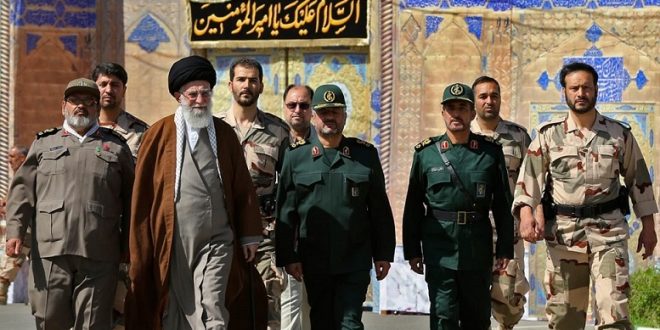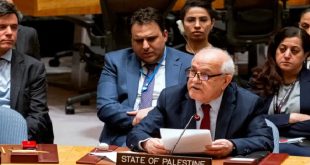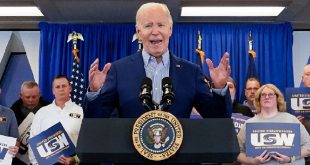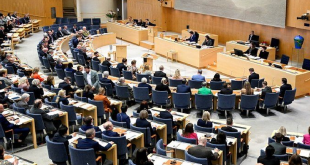By SJA Jafri + Agencies
MELBOURNE/ WASHINGTON: The US called off military strikes against Iran on Thursday night that were approved by President Donald Trump, according to an administration official, abandoning a move that would have dramatically escalated tensions that are already running high between the two countries.
The attack, ordered after Iranian forces shot down a US Navy drone over the Strait of Hormuz, would have involved airstrikes and was close to being carried out when it was stopped, said the official, who was granted anonymity to discuss a national security matter. The official would not discuss whether the plan might be revived.
Airstrikes would raise the specter of a far broader conflict in the volatile region, which supplies one-third of the world’s oil.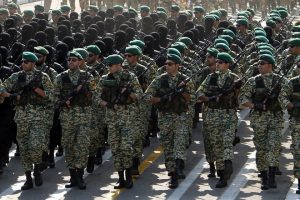
It was not immediately known what prompted the decision to hold off. But the move and its reversal underscore the wavering approach the president has shown at times regarding military force. He has repeatedly and fiercely lashed out at Iran and North Korea, but then cooled his rhetoric when hostilities threatened to erupt into open conflict. On two occasions since he took office, he has ordered military strikes on Syria.
Brent oil pared its biggest weekly gain in four months on the shifting developments. Futures erased gains in London on Friday, but are still up 4% for the week.
Earlier Thursday, as the attack was being planned, Trump downplayed Iran’s strike on the U.S. Navy drone in the Persian Gulf that escalated regional tensions and fueled a surge in oil prices, suggesting a “loose and stupid” individual may have been responsible for the strike.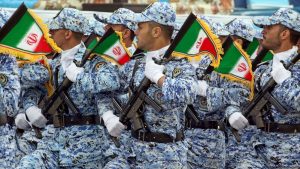
“I would imagine it was a general or somebody who made a mistake by shooting that drone down,” Trump said during an Oval Office meeting Thursday with Canadian Prime Minister Justin Trudeau. “I find it hard to believe it was intentional. It could have been somebody who was loose and stupid.”
The operation was first reported by the New York Times, which said that Trump had pulled back as warplanes were in the air. The US official disputed that part of the Times account.
The White House declined to comment on the reports and an official at the State Department didn’t immediately respond to a request for comment.
The president is in an increasingly difficult position on Iran. His administration has blamed the Islamic Republic for a series of attacks in the Gulf region since mid-May, including one last week on two oil tankers, but with little consequence for Tehran. He’s shown a desire to project American power, yet during the 2016 election he promised to extricate the U.S. from foreign conflicts, an issue that’s sure to come up as his re-election campaign begins.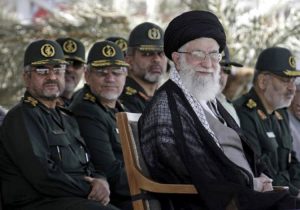
The US has directed additional forces to the Middle East in recent weeks, but the numbers — about 2,000 troops in total — have been modest and haven’t come with clear indications of where they would be sent or what their mission would be. In some cases, forces already planned for deployment to the region had their arrival accelerated, while troops scheduled to depart saw their tours extended.
A military assault by the U.S. could have immediate and far-reaching consequences. With proxy forces or allies in countries including Lebanon, Syria, Iraq and Yemen, among others, retaliation from Iran could come in many forms, targeting not just US interests but Israel as well and raising the risk of disruptions to oil flows out of the wider Persian Gulf region.
The last time the US launched a significant military effort against Iran was Operation Praying Mantis in 1988. In that operation, US Navy ships sank two Iranian ships and destroyed two Iranian surveillance platforms.
The move came after the USS Samuel B. Roberts was damaged by a mine in the Persian Gulf.
Later that year, a US Navy cruiser shot down an Iranian commercial aircraft on a scheduled flight in Iranian airspace, killing nearly 300 people. The US expressed regret for the loss of life and said it mistakenly targeted the plane. Iran said it was a deliberate and illegal act.
During his time in office, Trump has ratcheted up economic sanctions on Iran as part of his “maximum pressure” campaign against the Islamic Republic. Yet he has also said he doesn’t want a war with Tehran and that he is hoping Iran will reach out to negotiate.
As tensions climbed on Thursday following the drone strike, regional analysts and lawmakers from both parties warned that the likelihood of a bigger confrontation could be looming, whether intentional or not!
“The president may not intend to go to war here but we’re worried that he and the administration may bumble into a war,” Senate Minority Leader Chuck Schumer, a New York Democrat, told reporters Thursday after a briefing at the White House.
The top Republicans in the Senate and House both called separately for Trump to take a “measured” response to the Iranian actions.
The U.S. said the Global Hawk drone was flying in international airspace about 34 kilometers (20 miles) away from Iranian territory when it was shot down.
“This was an unprovoked attack on a US surveillance asset in international airspace,” said Navy Captain Bill Urban, a spokesman for US Central Command.
Iranian officials pressed back, saying the drone was in their territory and that they recovered portions of it in their waters.
It is pertinent that the New York Times and the Associated Press (AP) news agency are reporting United States President Donald Trump ordered an attack on Iran last night, but called the operation off when it was already underway.
A senior administration official told The New York Times that Trump approved attacks on Iranian targets such as radar and missile batteries.
According to the report, the operation in reprisal for the shooting down of a US drone was already in its early stages, with planes in the air and ships in position when the order to stand down came through.
 Pressmediaofindia
Pressmediaofindia
